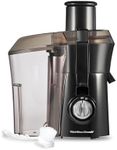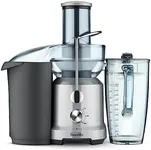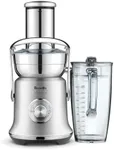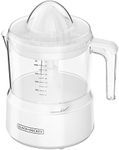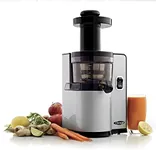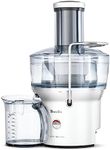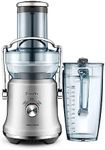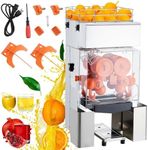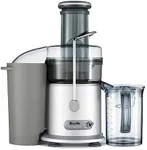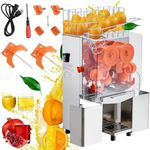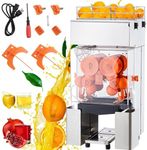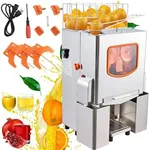Buying Guide for the Best Juice Maker Machine
Choosing the right juice maker machine can significantly enhance your juicing experience, ensuring you get the most out of your fruits and vegetables. When selecting a juice maker, it's important to consider various specifications that will affect the machine's performance, ease of use, and the quality of juice produced. Here are some key specs to look out for and how to choose the best fit for your needs.Type of JuicerJuice makers come in different types, primarily centrifugal, masticating (cold press), and citrus juicers. Centrifugal juicers are fast and great for hard fruits and vegetables, but they can be noisy and may produce less juice. Masticating juicers operate at a slower speed, preserving more nutrients and yielding more juice, especially from leafy greens, but they are generally more expensive. Citrus juicers are specifically designed for citrus fruits and are simple to use. Choose based on the types of produce you plan to juice most often.
Motor PowerMotor power, measured in watts, determines how efficiently the juicer can process fruits and vegetables. Higher wattage (700-1000 watts) is ideal for tougher produce and frequent use, ensuring smooth operation without overheating. Lower wattage (200-500 watts) is sufficient for softer fruits and occasional use. Consider your juicing frequency and the types of produce you will be using to decide on the appropriate motor power.
Juice YieldJuice yield refers to the amount of juice extracted from a given quantity of produce. Masticating juicers typically offer higher juice yields compared to centrifugal juicers. If you want to maximize the amount of juice and minimize waste, look for a juicer known for its high yield. This is particularly important if you plan to juice leafy greens or want to get the most out of your produce.
Ease of CleaningCleaning a juice maker can be a tedious task, so it's important to consider how easy it is to clean. Some juicers have dishwasher-safe parts, while others require manual cleaning. Look for models with fewer parts and those that come with cleaning brushes. If you plan to juice frequently, ease of cleaning will be a significant factor in ensuring you use the machine regularly.
Noise LevelJuicers can be noisy, especially centrifugal models. If you prefer a quieter operation, particularly if you juice early in the morning or have a noise-sensitive household, consider a masticating juicer, which operates more quietly. Noise level may not be a deal-breaker for everyone, but it's worth considering based on your living situation and personal preference.
Size and StorageJuice makers come in various sizes, and it's important to consider the space you have available in your kitchen. Larger models may offer more features but require more counter space and storage. Compact models are easier to store but may have fewer features. Assess your kitchen space and storage options to choose a size that fits your needs without compromising on functionality.
Additional FeaturesSome juice makers come with additional features such as multiple speed settings, pulp control, and attachments for making nut milk or sorbets. These features can enhance the versatility of the machine but may also increase the price. Consider which additional features are important to you based on how you plan to use the juicer and whether they justify the extra cost.
